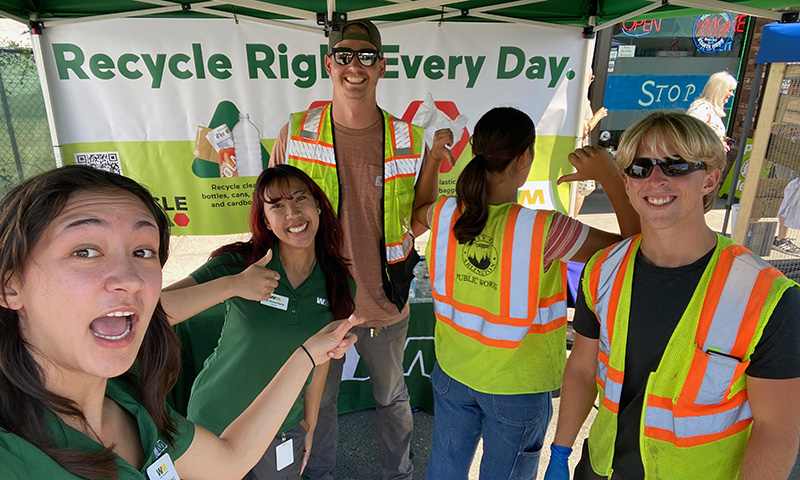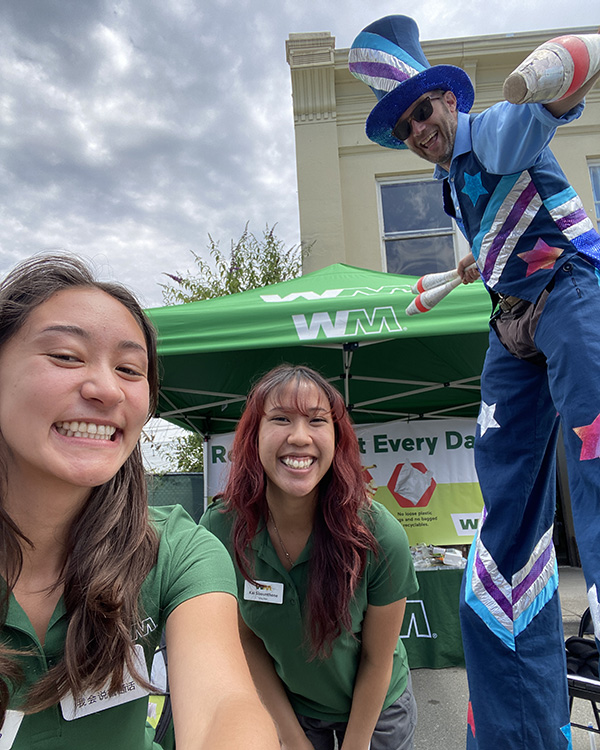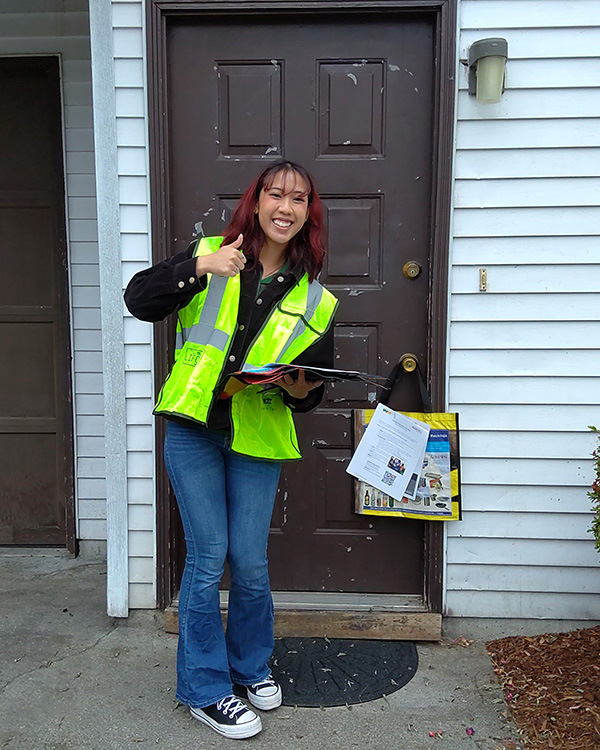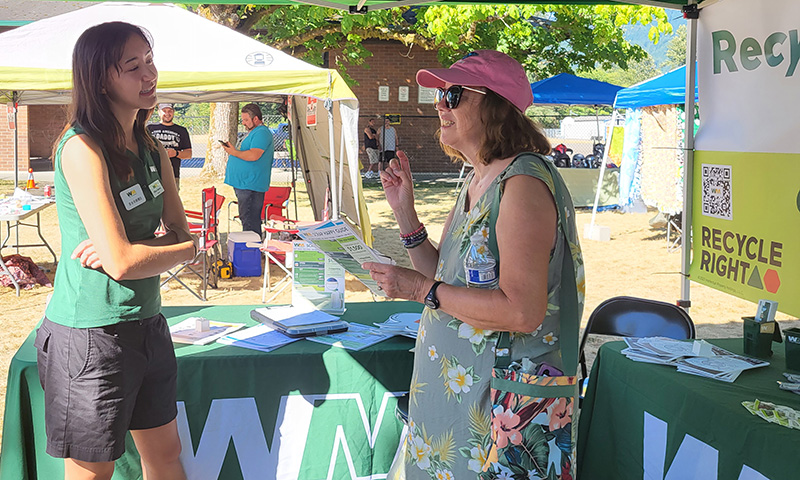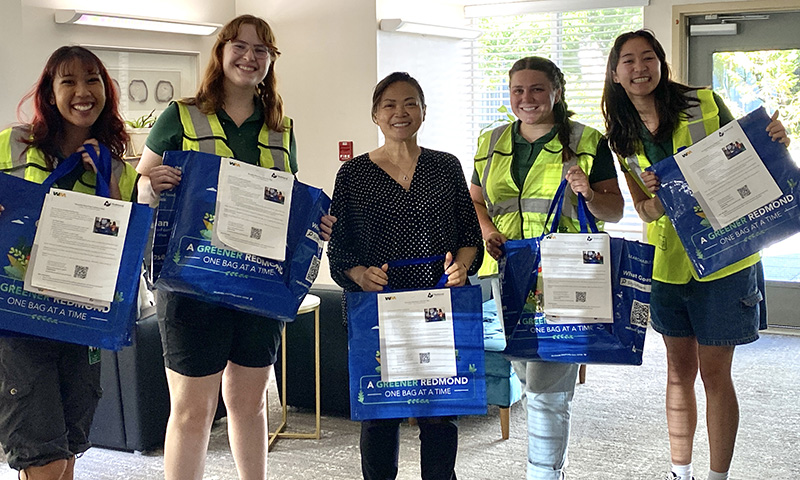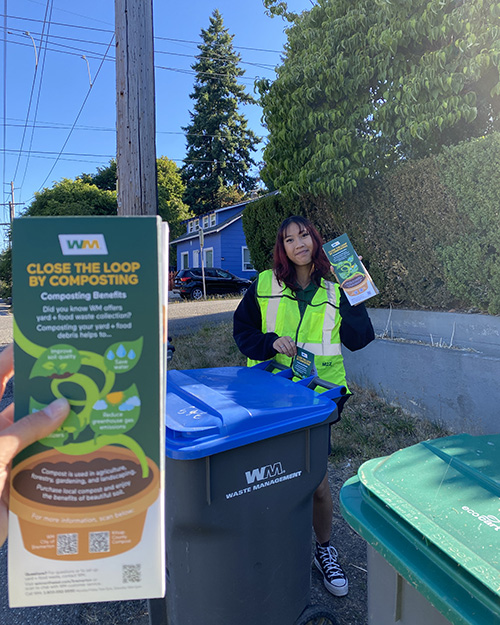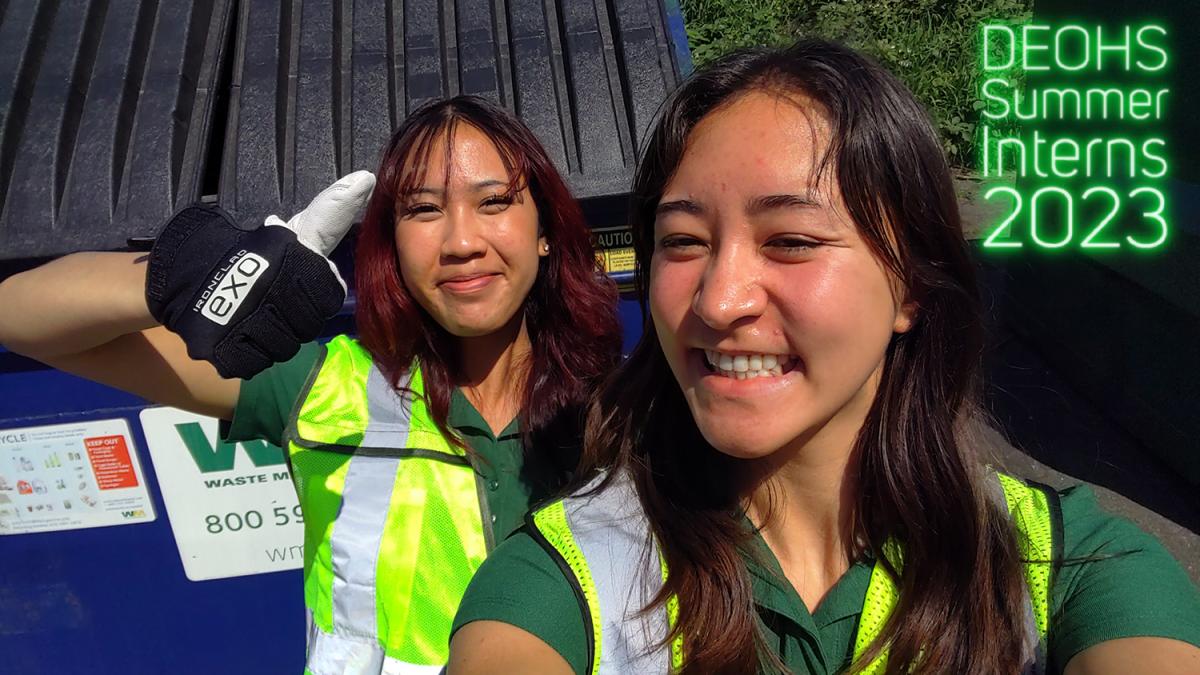Editor’s note: This summer, 20 DEOHS undergraduate students are getting hands-on experience as interns with health agencies, nonprofits and private companies. In our occasional “On the Job” series, we feature some of their stories.
What should I do with clamshell plastics? Where does my trash go after it's picked up at my house? Why can’t plastic bags go in the recycling cart?
Everyone has questions about recycling. As summer interns for WM – one of the largest recyclers in North America – our job was to have answers.
During our summer internship with the WM Recycle Corps, one of the greatest experiences was being out in the field. We worked in 13 communities around Seattle. One day, we might help an apartment complex manager deal with mattresses tossed in the recycling dumpster (bad idea!).
The next day, we could be helping businesses train employees to not put recyclables in plastic bags. (Plastic bags get tangled in the machines at the recycling facilities, so return them to grocery stores that recycle them, put them in the garbage or use a reusable bag!).
Key takeaway: When we talk with people about garbage, recycling and composting, it truly feels like we’re making a positive impact.
Allison's reflection
This internship allowed me to see the gaps in environmental education and health disparities due to environmental factors. Socioeconomic status may relate to the amount of recycling awareness in some areas, where recycling may not be a priority compared to paying rent or buying groceries.
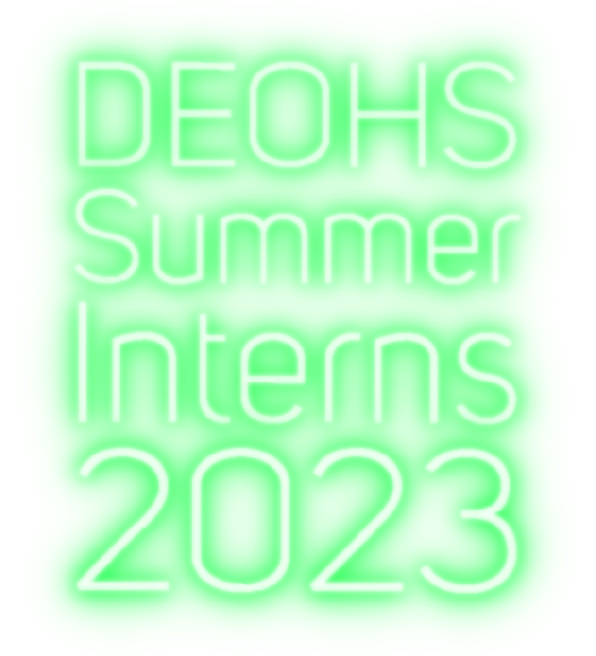
Kailee Sisounthone and Allison Seamon
BS in Environmental Health
Hometowns
Pasco, WA, and San Jose, CA
Internship with:
WM
The WM education team focuses on making recycling education accessible by fostering diverse voices on the intern team and using recycling guides and posters with culturally appropriate visuals to engage diverse communities.
Kai's reflection
I’ve always been interested in sustainability and the solid waste industry. Through this internship, I learned how things get sorted at recycling facilities, what happens after items leave the recycling facility and how landfills work.
I also learned many skills, like data entry, doing waste audits and how to communicate with people from different backgrounds. I’ve learned there are many disparities around resources to help manage solid waste, which is why I believe this work is important.
